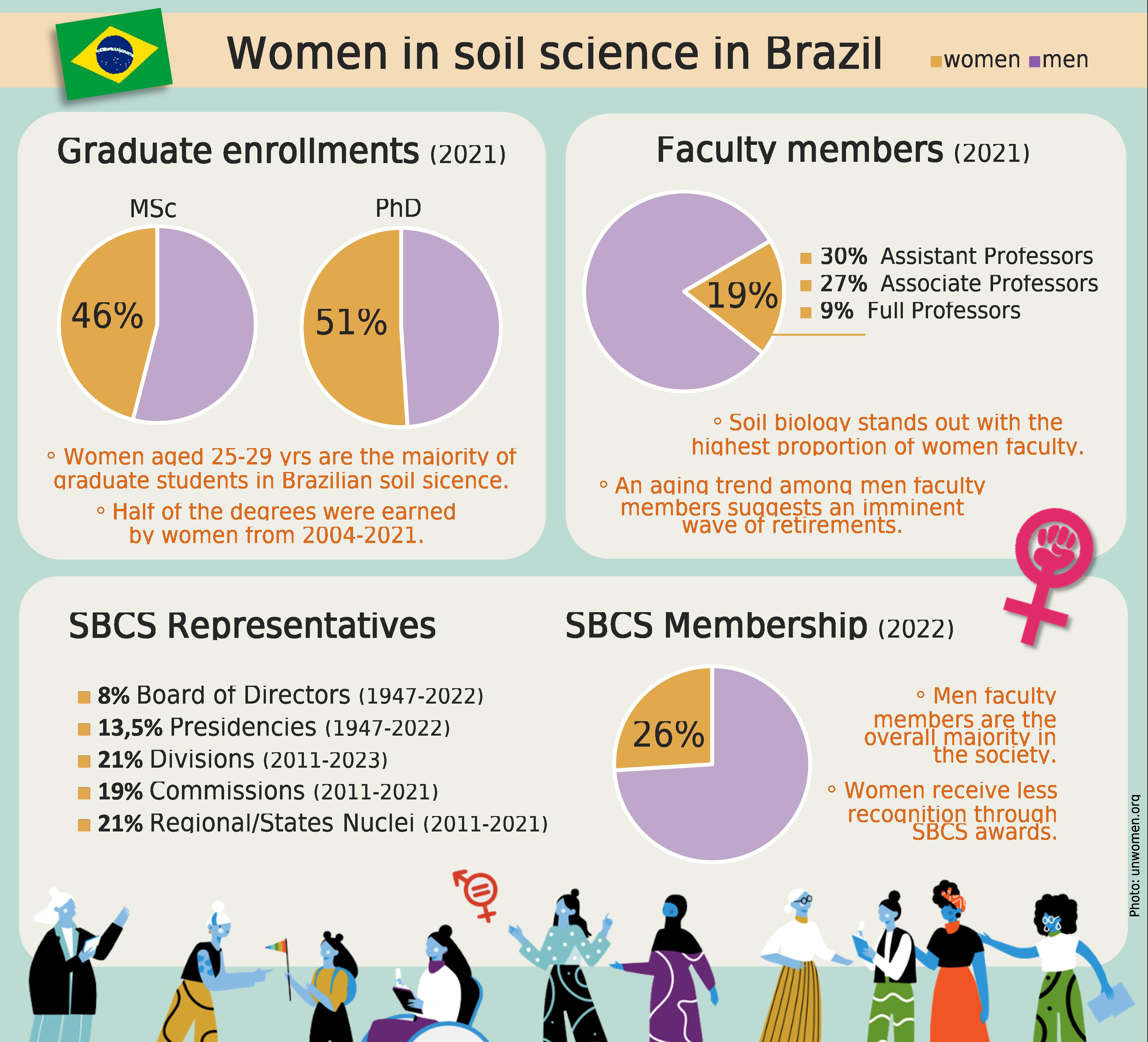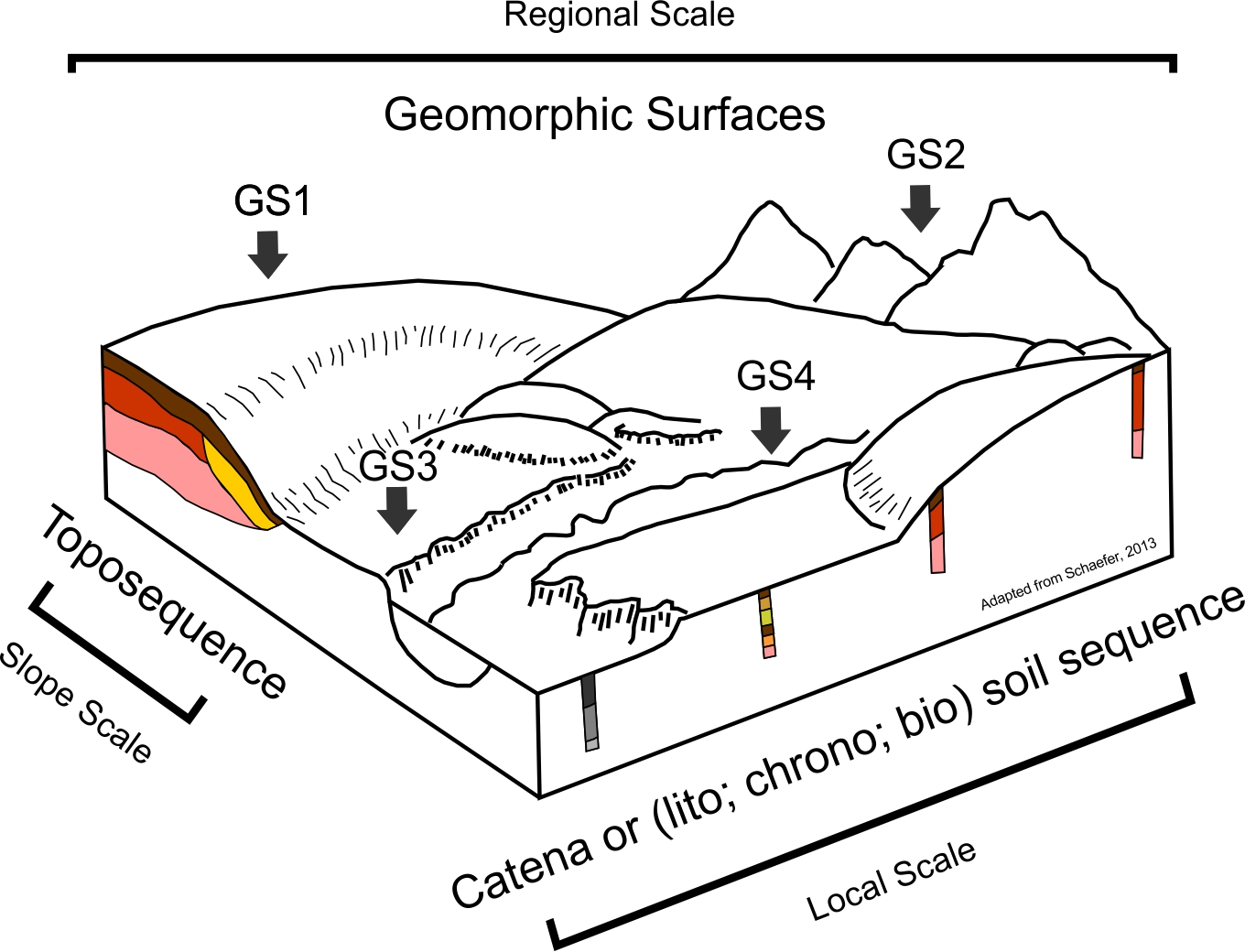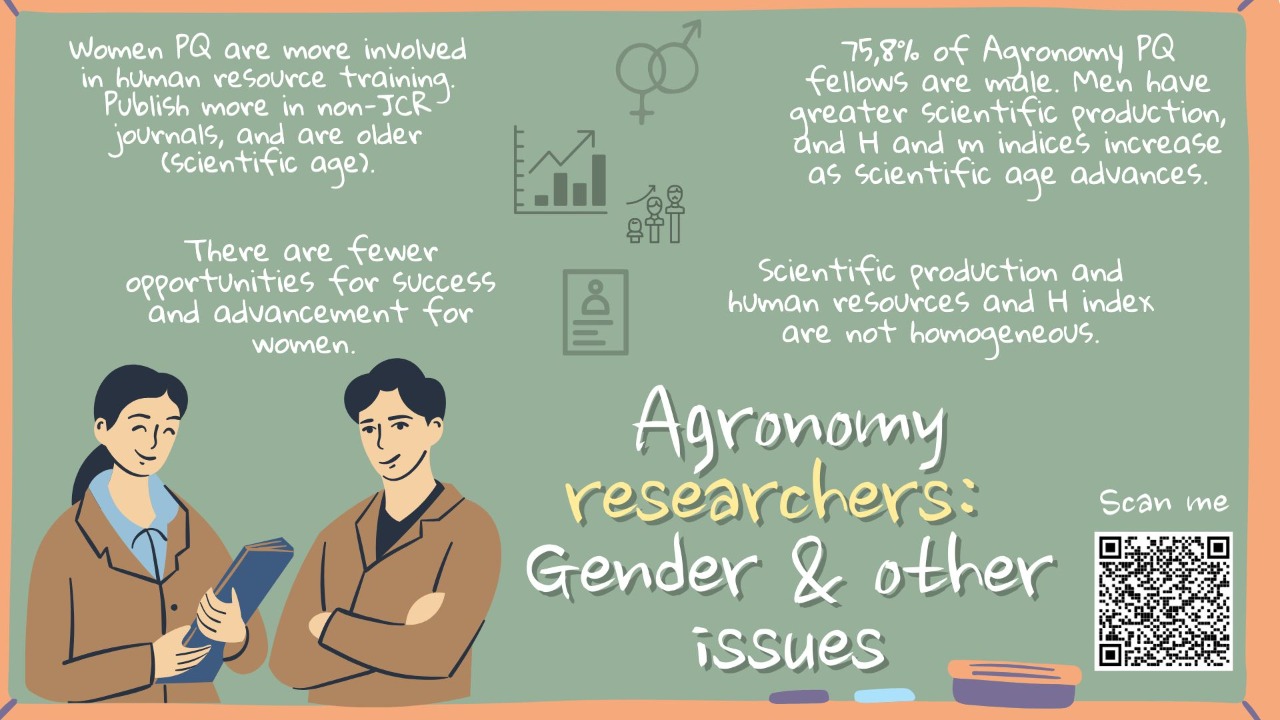Gender equity in soil science in Brazil: Still at the beginning of a long journey
25/Nov/2024
ABSTRACT Current studies have highlighted a significant gender disparity in the field of soil science. However, the scarcity of research and data on this issue can hinder the urgent need to address it and effect meaningful changes. This was the first demographic survey of Brazilian soil science, focusing on gender composition over time at different academic and professional levels, as well as peer recognition. We examined the metrics of students and faculty from all Brazilian soil science graduate programs (2004-2021), […]
Toposequence: What are we talking about?
10/Jun/2024
ABSTRACT The term toposequence, proposed to designate a lateral succession of soils on a slope due to the influence of topography, began to be used differently over time, distancing itself from its original concept. Here, we discuss how this concept has been used since its inception. We carried out bibliometric analyses of publications in the database available on the Web of Science since 1900. Three main approaches and related concepts, explicit or not, one at a regional scale and two […]
Agronomy researchers and research scholars in Brazil: Gender, scientific age, scientific production and impact, and training of human resources
18/Jul/2022
ABSTRACT Transparency of evaluation criteria and monitoring recommendations for research grants require careful judgment and frequent reassessment of guiding parameters. The aim of this study is to inform the scientific community and funding agencies about the applicants profile for research productivity grants (PQ) in the field of Agronomy of the National Council for Scientific and Technological Development (CNPq), and to contribute to the analysis of grant distribution using the grant applicants of the 2018 call as a study sample. The […]
Mercury Content in Soils of Southeastern Brazil Without Anthropogenic Influence and its Correlation with Soil Characteristics
01/May/2015
Correlation between physical and chemical characteristics of soils and their natural mercury content is important for identifying the parameters that most influence Hg retention in these soils and its distribution in different environmental compartments. The aim of this study was to quantify the Hg content of tropical soils without anthropogenic influence and correlate it with physical and chemical soil characteristics. The present study is relevant because most research focuses on contaminated soils and, in the case of tropical soils, research […]
Local Perceptions of Soils and their Use in the Municipality of Gravatai, RS, Brazil
01/May/2015
Gravatai is a municipality within the metropolitan region of Porto Alegre, State of Rio Grande do Sul, with great potential for agricultural development based on greater interaction between producers and research and extension services. The main objectives of this study were to understand local perceptions and knowledge about the natural resources of soils and landscapes, as well as the logic of production systems; and to evaluate the linkage of this knowledge with soil classification and evaluation made through academic criteria. […]
PEASANT AND SCIENTIFIC KNOWLEDGE ON PLANOSOLS AS A SOURCE OF MATERIALS IN THE MAKING OF NON-INDUSTRIAL POTTERY
01/Jan/2015
Ethnopedological studies have mainly focused on agricultural land uses and associated practices. Nevertheless, peasant and indigenous populations use soil and land resources for a number of additional purposes, including pottery. In the present study, we describe and analyze folk knowledge related to the use of soils in non-industrial pottery making by peasant potters, in the municipality of Altinho, Pernambuco State, semiarid region at Brazil. Ethnoscientific techniques were used to record local knowledge, with an emphasis on describing the soil materials […]



